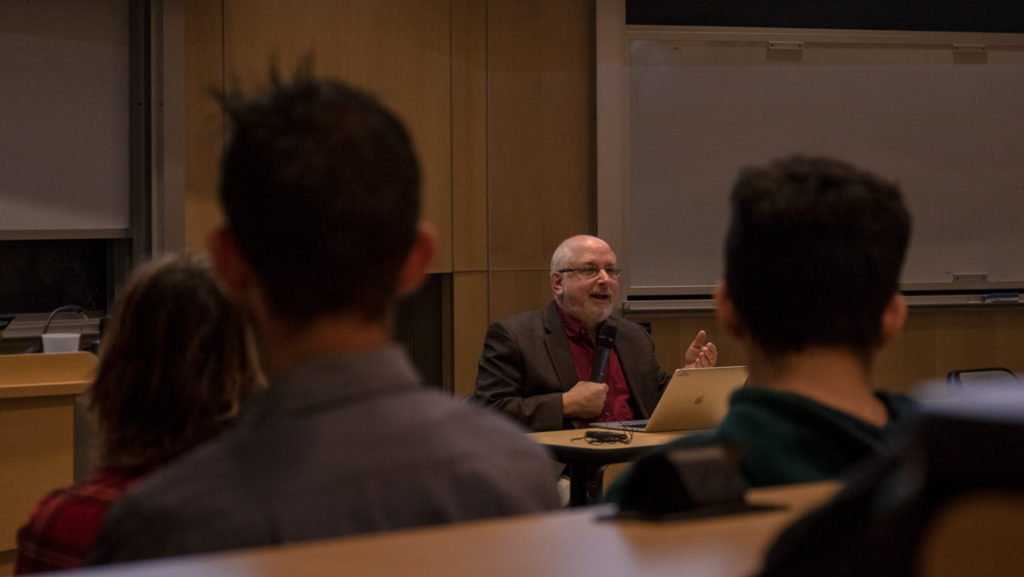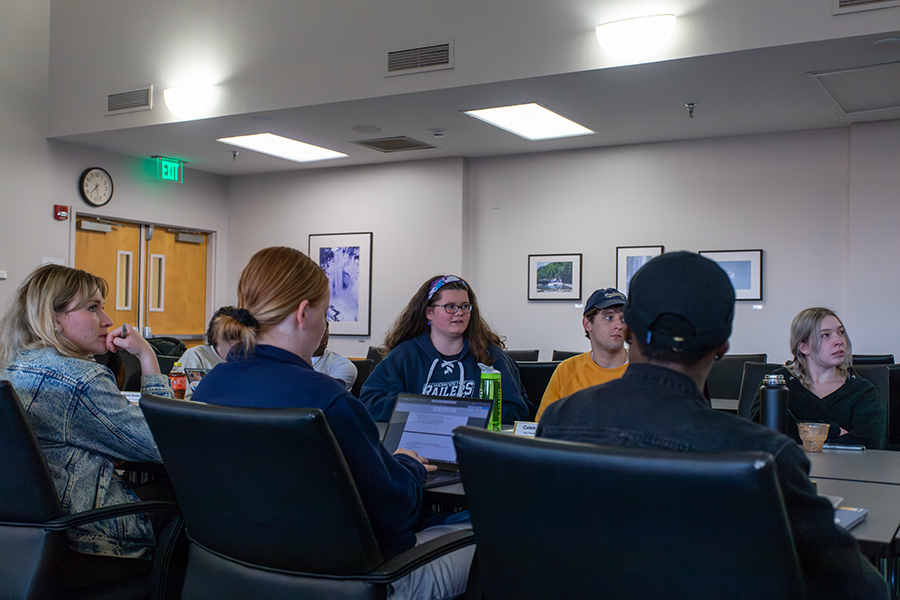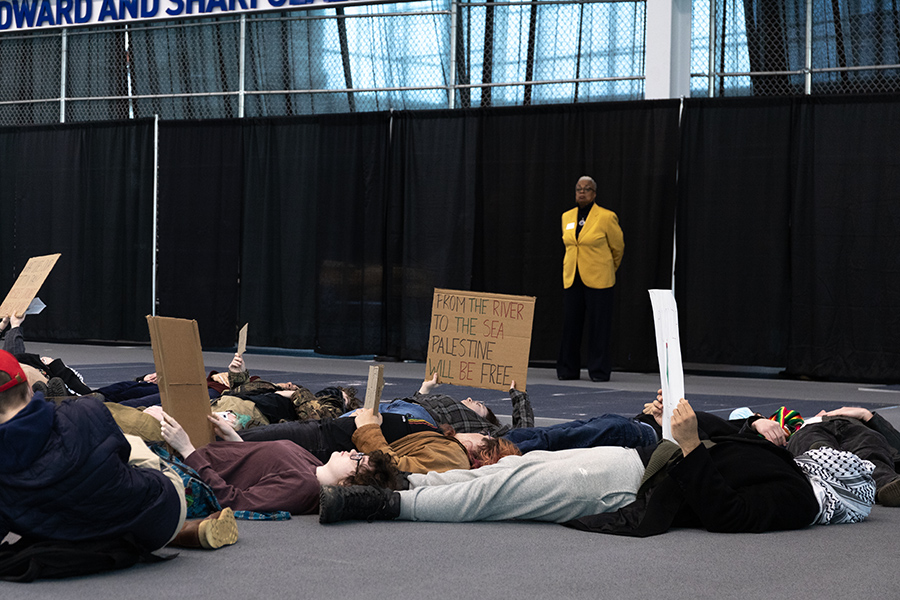John Makransky, associate professor in the Theology Department at Boston College, spoke to the Ithaca College campus community about sustainable compassion April 26 in Textor 101.
Sustainable compassion training helps people in caring roles find a better way to exercise their compassion and empathy. Makransky spoke about inclusive compassion and the replenishing power of caring for others to approximately 35 people who attended the event. The Mindfulness and Wellness Initiative Working Group organized the program for the college’s Sustainability Week, which typically focuses on environmental sustainability and ways members of the community can assess their roles in coping with the effects of climate change. In his presentation, Makransky focused on sustainable empathy in personal relationships instead.
Makransky said he defines compassion as empathy and concern that someone may have for an individual who is suffering. He said compassionate individuals should take action to alleviate that suffering.
“In Buddhist traditions, for example, compassion is a form of love — a deep care for beings,” he said. “But it’s the form of love or deep care that wishes them to be free in the suffering they are going through.”
Makransky said he works with people who work in roles that require compassion or empathy, like healthcare providers, teachers, social workers, social activists and people in various religious and spiritual communities. He said that through training he helps them to find healthier ways to feel empathy and compassion.
“Within all these groups, there are people who would like to access the power of care and compassion that can be much more sustaining, inclusive and replenishing than what they’ve been experiencing,” he said.
He discussed the social baseline theory written by James Coan, professor in the Department of Psychology at the University of Virginia, which suggests that the human brain is designed to function best when it is connected to others. He said when people feel alone, their energy becomes depleted and they actually feel more pain. He said this was demonstrated by research that found that when a person undergoes an electric shock, they will feel less pain when holding a friend’s hand.
Makransky said social baseline theory ties in with attachment theory, which asserts that in the course of a person’s social maturation, people who feel they are loved are likely to act lovingly toward others. He said humans are wired by evolution for human connection.
“It seems to be crucial for human beings to experience ourselves as held in care and love. We need that,” he said. “That empowers the possibility in our own developmental direction of becoming a person who feels at home enough in our own world, secure enough, welcomed enough that we can then welcome others.”
Makransky said compassion healing can benefit students who are under stress about succeeding and need time for self-care.
“We’re all trying so hard to hold together the kind of world each of us is trying to hold together in our world, in our work or in our family life or in our community,” Makransky said. “We’re struggling so hard to do that, so in terms of being motivated for a deep kind of self-care, … we just need to notice that it’s not working so well for us to be oriented by only what we think is care for others.”
He said there are some problems with people’s experiences with empathy that tend to limit their capacities for compassion. Makransky said one problem with the way people experience empathy is empathic distress, which can lead to empathetic fatigue and burnout. He said another problem is that people may support violence or prejudice toward those who are outside of one’s in-group.
“We have empathy for members of our group,” he said. “But we have no empathy for an out-group. … Throughout the whole world, we see this replay every day, religious tensions and violence around the world fueled in large part by in-group empathy.”
Senior Isaiah Nardone-Rogers said the event made him analyze himself and his relationships and understand how he could possibly strengthen those relationships. He said the presentation made him think about how people can connect with those around them.
“It makes you think more about yourself and your personal health,” Nardone-Rogers said.
Sophomore Colin Jacob said the event allowed him to think about how sustainability could be applied to his life in terms of compassion and helping other people.
“I think it’s very interesting that this was during Sustainability Week because I think of sustainability as environmental,” he said. “I didn’t have it in mind that having a sustainable life helps me reach sustainability goals for the environment.”








